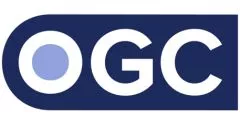- within Consumer Protection, Employment and HR, Food, Drugs, Healthcare and Life Sciences topic(s)
- with Inhouse Counsel
- with readers working within the Banking & Credit and Healthcare industries
A new, first-of-its-kind state law offering protections for an individual's voice and likeness against unauthorized clones and fakes generated using artificial intelligence (AI) went into effect in Tennessee on July 1, 2024. The Ensuring Likeness, Voice, and Image Security (ELVIS) Act of 2024 ("Elvis Act") expands current protections for name, image and likeness by adding voice to the sphere of protection. The legislation is in response to emerging generative AI technology enabling the creation of unauthorized fake works using the image and voice of others.
Recognizing the serious threat that AI-generated synthetic media poses to songwriters, performers and other industry professionals, the ELVIS Act garnered a groundswell of support from music arts organizations across the country and portends a direction that other states and the federal government may go.
Key Provisions of the ELVIS Act
The ELVIS Act amends the Tennessee Personal Rights Protection Act of 1984 ("PRP Act") by adding protections for voice to existing restrictions on use of an individual's name, photograph and likeness. Key provisions of the ELVIS Act include:
- Definition of voice
The Act defines "voice" to include "a sound in a medium that is readily identifiable and attributable to a particular individual, regardless of whether the sound contains the actual voice or a simulation of the voice of the individual."
- Expanded liability
The Act expands the scope of liability under the law to include not only the person(s) who engaged in the unauthorized use, but also, any person or company that either:
(1) publishes, performs, distributes, transmits, or otherwise makes available to the public an individual's voice or likeness, with knowledge that use of the voice or likeness was not authorized by the individual;" or
(2) distributes, transmits, or otherwise makes available an algorithm, software, tool, or other technology, service, or device, the primary purpose or function of which "is the production of a particular, identifiable individual's photograph, voice, or likeness, with knowledge" that the use "was not authorized by the individual."
- Narrowed exemptions
The ELVIS Act narrows the exemptions currently provided under the PRP Act, as follows:
(1) the existing "fair use" exemption for uses made in connection with news, public affairs, or a sports broadcast is now limited to only those uses which are protected by the First Amendment to the United States Constitution, and
(2) the carve-out to the existing advertising exemption for owners or employers of any medium used for advertising, such as newspapers, magazines, and radio stations, is expanded to encompass knowledge of unauthorized use and instances where a company "reasonably should have known of" such use.
- Available remedies
The ELVIS Act leverages existing remedies available under the PRP Act, which include:
(1) injunctive relief against unauthorized uses of name, image, likeness and voice;
(2) destruction of any materials created in violation of the law; and
(3) actual damages, plus any profits that are attributable to the violation.
However, the Act does expand the scope of third-party enforcement by permitting record companies and other parties hired to distribute sound recordings to bring an action on behalf of the artists whose rights have been infringed.
Implications for business
A broad range of media companies, including social media and streaming services, are likely to be affected by the ELVIS Act; and, the Act's expanded liability provisions may have an effect on developers of AI-related tools and software and other AI companies. As such, these companies should be ready to face broader liability.
Additionally, the ever-present tension between state and federal intellectual property laws will require scrutiny by businesses and their counsel. And finally, in much the same way social media platforms have come to learn, it should be noted that First Amendment implications are certain to arise in terms of free speech interests, leaving AI companies to look to the fair use doctrine as a possible defense, but that is a discussion for another post.
The content of this article is intended to provide a general guide to the subject matter. Specialist advice should be sought about your specific circumstances.


